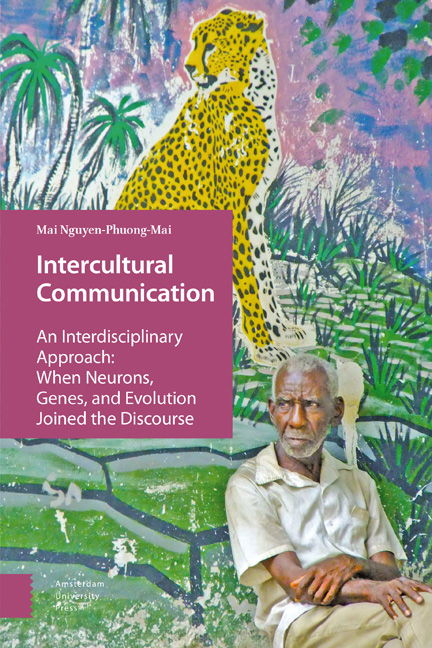 Intercultural Communication
Intercultural Communication Book contents
- Frontmatter
- Dedication
- Contents
- Preface
- 1 The Survival of the Most Cultured
- 2 The Evolving Culture
- 3 Stereotype – A Necessary Evil
- 4 Non-Verbal Communication – How You Make Them Feel
- 5 A Taxonomy of Diversity
- 6 Intercultural Competence – Creating Yourself
- 7 Diversity Management and Inclusion
- To the Readers
- 7 Takeaways from this Book
- Up and Coming Book from the same Author
- Notes
- Index of Names
- Index of Subjects
- Index of Geography, Culture and Religion
Preface
- Frontmatter
- Dedication
- Contents
- Preface
- 1 The Survival of the Most Cultured
- 2 The Evolving Culture
- 3 Stereotype – A Necessary Evil
- 4 Non-Verbal Communication – How You Make Them Feel
- 5 A Taxonomy of Diversity
- 6 Intercultural Competence – Creating Yourself
- 7 Diversity Management and Inclusion
- To the Readers
- 7 Takeaways from this Book
- Up and Coming Book from the same Author
- Notes
- Index of Names
- Index of Subjects
- Index of Geography, Culture and Religion
Summary
It was a beautiful Sunday afternoon. We were twenty journalists from all over the world who had gone through a selection process in order to win a place for an intensive training with Reuters in London. On that day, as we were about to work on a news coverage, the door was suddenly thrust open. A dozen militants armed with machine guns violently rushed in. They shouted in a language we didn't understand and forced us to lie down. We were all shaken to the core when they pulled out blind folds and covered our eyes with them. In the darkness, we were led outside and into a truck that smelled like it had come straight from an abattoir.
It was the scariest training simulation I’ve ever had in my career. The coaches – very experienced war correspondents – put us through it so that we could experience what it would be like to be kidnapped. We kept analyzing the situation during the training, and through these discussions, I learned a few more lessons that had nothing to do with reporting in a war zone.
The first lesson came from a discussion in which an editor emotionally told me that the experience was very similar to living in Johannesburg. There, armed guards walked among pedestrians, and many houses look like fortresses. He then tried his hardest to kill my plan to go there. At that point, a British news anchor joined us and said: “We are journalists, not judges. Why do we have to jump right into sensational differences? Let's start with something we all share. Like, we all agree that French is not a real language.” Everyone laughed.
While I didn't always understand the mocking, teasing, and mildly xenophobic jokes in Europe, I immediately got the message when another reporter expressed her surprise when I revealed that I had never watched the classic kidnapping masterpiece Fargo. She looked at me with half a smile: “Where have you been?” The micro-aggression was so subtle I didn't realize it at first and felt ashamed. This was the second lesson I learned: The world clearly revolved around the US. A known movie in this part of the globe is supposed to be a universal phenomenon. A country on the other side of the water is a distant, faraway land.
- Type
- Chapter
- Information
- Intercultural CommunicationAn Interdisciplinary Approach: When Neurons, Genes, and Evolution Joined the Discourse, pp. 9 - 12Publisher: Amsterdam University PressPrint publication year: 2017


